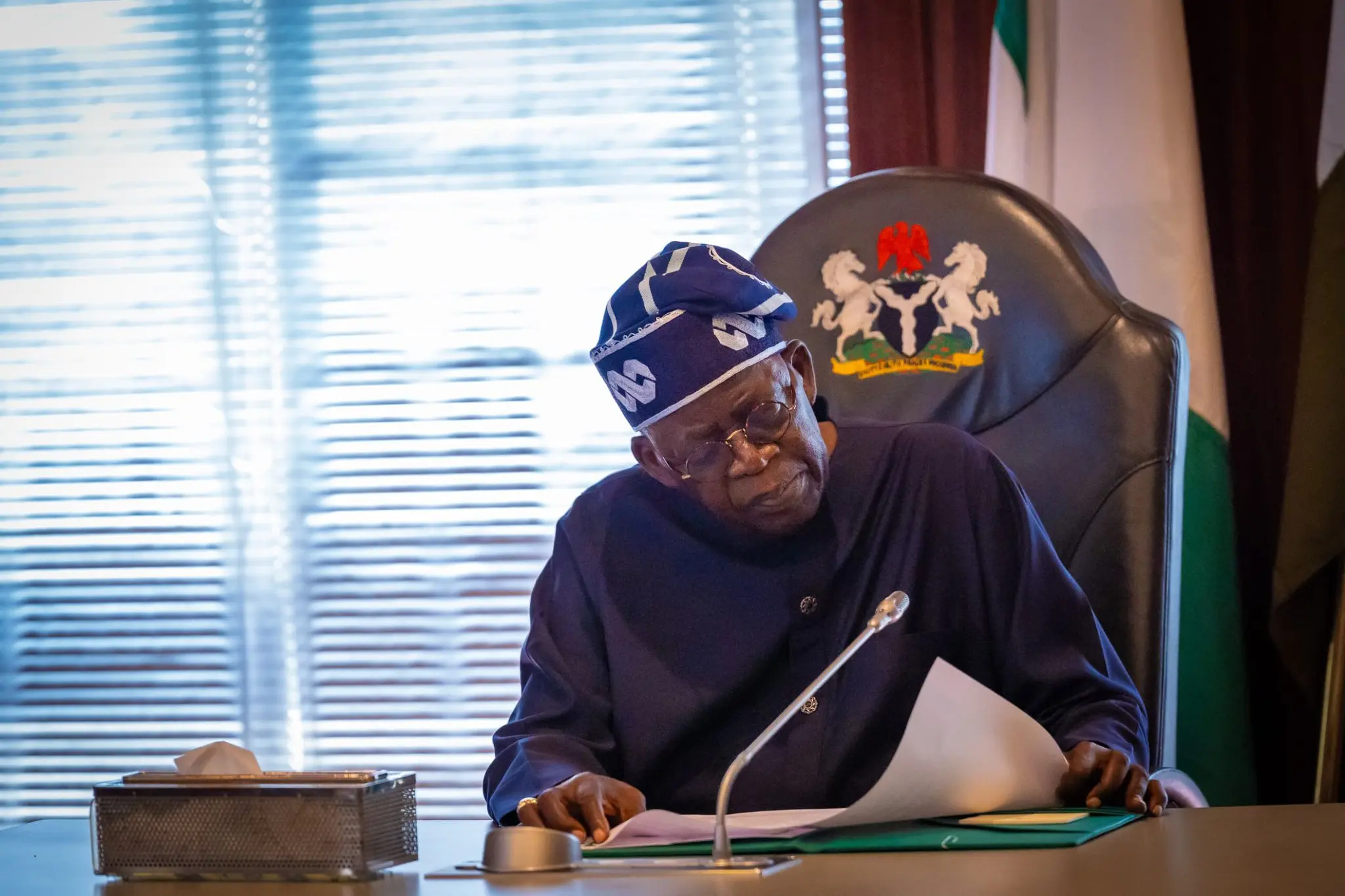Will President Tinubu listen?
Apart from an army of voluble commentators holding successive governments to account and speaking truths to them in the most parliamentary and patrician fashion, Nigeria is blessed with scores of irrepressible elder statesmen. Whenever matters come to a head and Nigeria teeters at the brink of precipice, these statesmen weigh in with their thoughts. They […]

tinubu neww
Apart from an army of voluble commentators holding successive governments to account and speaking truths to them in the most parliamentary and patrician fashion, Nigeria is blessed with scores of irrepressible elder statesmen.
Whenever matters come to a head and Nigeria teeters at the brink of precipice, these statesmen weigh in with their thoughts. They intervene by way of statements or well calibrated pronouncements. Sometimes they do so by authoring scathing epistles. Some of these statesmen, such as Chiefs Gani Fawehinmi, and Anthony Enahoro, and Dr. Tai Solarin have departed this world. But an edifying vestige remains, bearing the mantle, sharing in the pains and challenges buffeting Nigerians. They give expression to these pains by calling the attention of the powers that be when they falter or put the country on the path of perdition. In the rank of this incandescent relic are: former Heads of State, Olusegun Obasanjo and Abdulsalami Abubakar. Others are: Chief Edwin Clark, Pa Ayo Adebanjo, General T.Y. Danjuma (rtd), John Cardinal Onaiyekan and Bishop Matthew Hassan Kukah.
Their occasional interventions are often well thought out and inimitable. They resonate with the Nigerian people. This is because they come when the people are hurting or despairing and the country appears rudderless. Consequently, their interventions re-assure the people. They assuage their anger. The interventions also restrain Nigerians from spewing their anger and frustrations in the streets. By the same token, they moderate the excesses of our leaders, who carry on, sometimes, cavalierly or as if they live in some other planet populated by extra terrestrials.
In the past two weeks, Generals T.Y. Danjuma, Abdulsalami Abubakar and John Cardinal Onaiyekan have spoken eloquently to two vexed challenges confronting the country. The first, heightened insecurity, and which many writers have advised the Bola Ahmed Tinubu administration to prioritise, has become a nightmare. It has reduced large swathes of the country into killing fields. It has also engendered an unprecedented food insecurity.
Common thugs and mendacious bandits are having a field day. They go on abducting and killing binges. One of the vile bandits, Bello Turji, has even cultivated the habit of taunting the hierarchy of our Armed Forces. He recently dared it to apprehend him, if it could, to the chagrin and bewilderment of Nigerians.
Rankled by the heightened insecurity in the country, General T.Y. Danjuma, at the recent launch of a book, entitled: “Big Boots: Lessons From My Military Service”, authored by Major General Solomon Udounma (Rtd), identified insecurity as Nigeria’s premier challenge. He said that: ”We must end the pandemic, stop the killings that are going on in our country as soon as possible. Those of you who are still serving have no excuses”.
One expects our Armed Forces, and by extension our government, to take this charge seriously, coming from a gentleman with a commanding and shimmering martial history. We expect our gallant Armed Forces to bring such minions and menaces as Turji to heel. Otherwise, his wicked tribe will increase or get emboldened at the expense of innocent Nigerians.
At different, and recent occasions, General Abdulsalami Abubakar and John Cardinal Onaiyekan have spoken to the hardship rampaging the country, leaving in its wake misery, starvation and untimely deaths. While receiving a delegation of the Campaign for Democracy (CD) in Minna, General Abubakar had remarked: ”Everybody is crying because of this hardship and it seems to be getting out of control. People cannot afford three square meals, the issue of transportation, the hike in fuel price, the hike in school fees for the children and lack of funds in everybody’s pocket is making life difficult for everybody”.
Speaking at the sidelines of a concert to mark the 2024 Feast of the Nativity of the Blessed Virgin Mary in Abuja, Cardinal Onaiyekan observed poignantly that: “There is a limit to what people can handle. You can’t tell someone to be patient with poverty while we see the people who are supposed to address our poverty live flamboyantly, building huge mansions and having fleet of cars without caring how they are fueled, whereas the rest of us are queuing to get a few litres of fuel. There’s need to review some of the policies that are giving rise to the kind of pain and poverty that we are not familiar with”.
These elder statesmen capture, succinctly and accurately, the predicament in which Nigerians find themselves today. There is no gain saying it that Nigeria was in a bad place as at the time Chief Bola Tinubu assumed the presidency. But his advent has worsened matters. Three of his policies, implemented, in one fell swoop, and at the behest of the International Monetary Fund (IMF)/World Bank, namely, the floating of the Naira, the withdrawal of subsidy on petrol and electricity, have compounded our hardship and trauma.
All costs associated with transportation and electricity have shot through the roof. Prices of foodstuff and building materials, among others, have gone stratospheric. Meanwhile, the Naira is on a daily free fall. Hundreds of millions who had adopted a curious eating habit by skipping meals cannot, now, afford a decent meal. School fees, especially of public schools, have increased beyond the pale in a country that boasts of one of the highest number of out-of-school children in the world. The middle class has since been wiped out by poverty and an environment that suffocates small businesses has emerged. Millions of youths roam the streets without jobs. The infinitesimally small affluent class co-mingles uneasily with hundreds of millions of the dirt poor.
